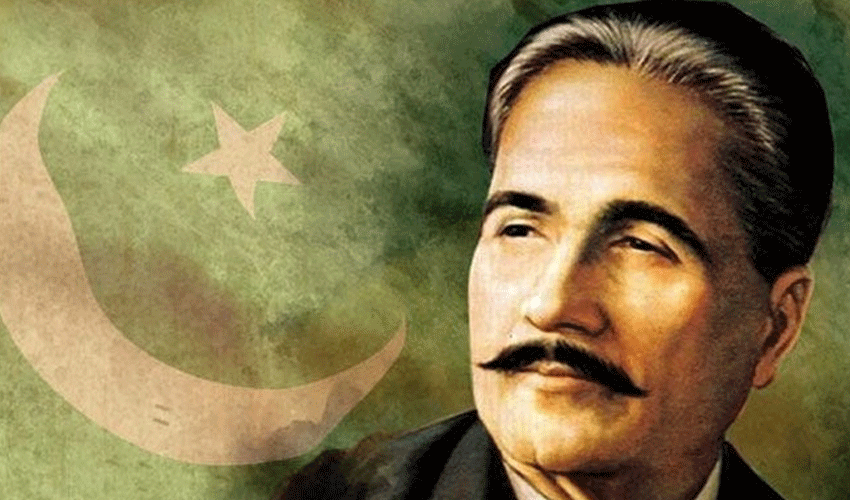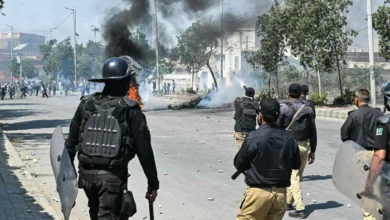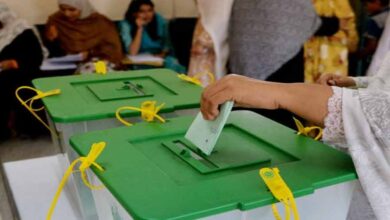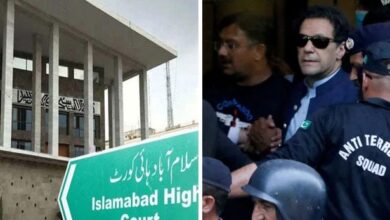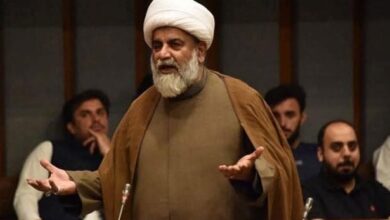Pakistan on Monday solemnly observed the 87th death anniversary of national poet Dr Allama Muhammad Iqbal, with political leadership and citizens paying rich tributes to the philosopher-poet for his intellectual and political contributions towards the creation of Pakistan.
A special ceremony was held at the Pakistan National Council of Arts (PNCA) in Islamabad to mark the occasion. Various events across the country, including seminars, poetry recitations, and discussions, were also organised to commemorate the life and legacy of Allama Iqbal.
President Zardari’s and PM Shehbaz’s statements
In separate messages, President Asif Ali Zardari and Prime Minister Shehbaz Sharif urged the nation to adopt the teachings of Allama Iqbal and his philosophy of selfhood, reformation and revival of the Muslim Ummah.
President Zardari, in his message, highlighted Iqbal’s role as a visionary thinker and reformer who awakened the Muslims of the subcontinent through his poetry and philosophy. “Allama Iqbal felt the pain of the decline of the Islamic world and used his words to reawaken a sense of purpose and identity among the Muslims,” he said.
“Iqbal’s poetry embodies the ideals of self-reliance, ijtihad, divine love, and intellectual freedom. He believed that the salvation of the Muslim Ummah lay not merely in political independence but in intellectual and spiritual awakening,” the president said, adding that his ideas should be used as a guiding light in overcoming contemporary challenges.
He reiterated that Iqbal’s Allahabad address in 1930 was the first formal articulation of the idea of a separate homeland for Muslims in the subcontinent — an idea that eventually culminated in the creation of Pakistan.
“Let us pledge to make Pakistan a country where all citizens enjoy equal opportunities, freedom, and justice,” he added.
Prime Minister Shehbaz Sharif also paid tribute to Iqbal, calling him the ideological architect of Pakistan. “Today we remember a visionary who not only dreamed of a separate homeland for Muslims but provided the intellectual foundations of the Pakistan Movement,” he said.
The prime minister noted that Iqbal’s philosophy was grounded in action, knowledge, and self-belief. “Iqbal inspired a generation to rise above divisions and strive for national unity, moral integrity, and educational excellence,” he said.
Calling Iqbal “a farsighted leader,” the prime minister said that Iqbal’s message was particularly relevant in the current climate of national division and global uncertainty. “In the face of contemporary challenges, Iqbal’s teachings offer a path forward — one of self-respect, knowledge, and unity,” he said.
Mr Sharif emphasized that the youth must study Iqbal’s teachings, calling them the true capital of the nation. “Iqbal saw youth as falcons, symbols of courage and vision. He believed in their potential to uplift the nation,” he added.
He urged the younger generation to embrace modern education, uphold moral values, and contribute to national development. “It is our collective duty to realise Iqbal’s dream by building a Pakistan that is socially just, economically self-reliant, and intellectually vibrant,” he said.
The 87th death anniversary of the Poet of the East was observed with reverence across the country, with many reflecting on Iqbal’s enduring legacy as both a literary giant and a political visionary.
Born in 1877 in Sialkot, Allama Iqbal’s poetry in Urdu and Persian inspired the Muslim renaissance in the Indian subcontinent. His philosophical and political ideas laid the groundwork for the creation of Pakistan, a vision later brought into reality by Quaid-e-Azam Muhammad Ali Jinnah.
Iqbal passed away on April 21, 1938, but remains a towering figure in Pakistan’s intellectual and political landscape.



